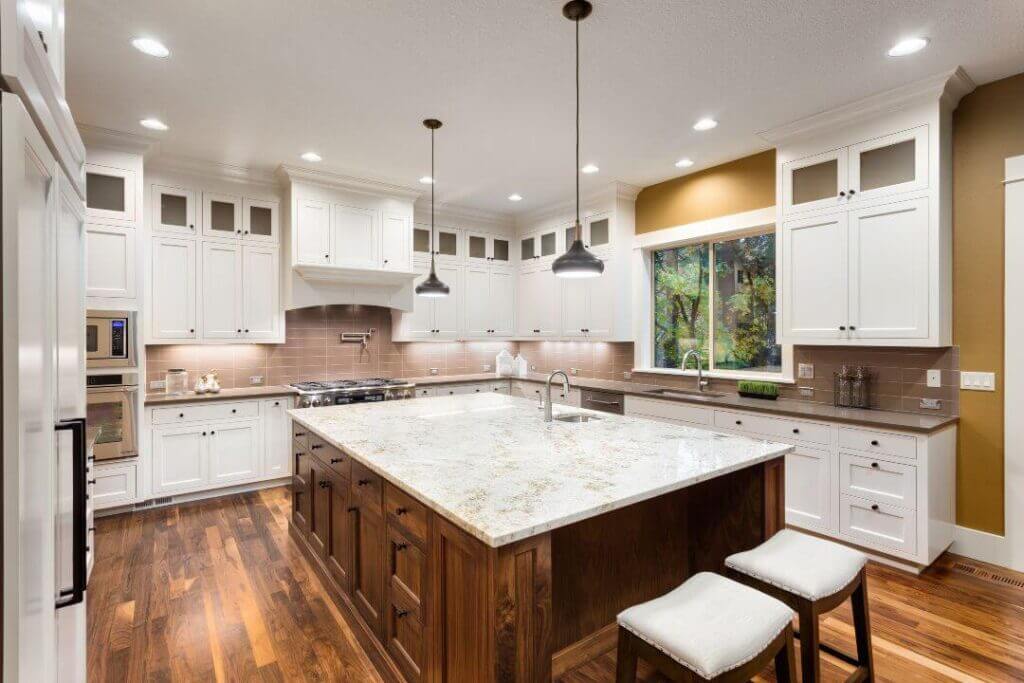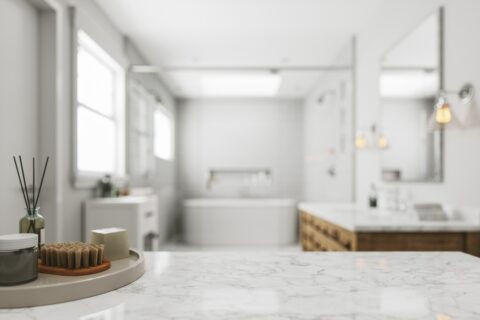Do Granite Countertops Need to Be Resealed?
Granite countertops can transform the look and feel of your kitchen or bathroom. After installing them, many homeowners wonder: Do granite countertops need to be sealed? And if so, how often should you seal granite? Here are the answers you’re looking for.

Do All Granite Countertops Need to Be Sealed?
Yes, but the recommended frequency for resealing granite countertops depends on several factors:
- Porosity: Granite is a natural stone, so one slab may be more porous than another. Highly porous granite is more likely to absorb color from spills, which requires sealing to avoid stains.
- Color: Darker-colored polished granite generally resists staining better than lighter shades. As such, dark polished granite countertops may require less frequent sealing.
- Manufacturer- or installer-applied treatments: Some companies include an advanced sealer to reduce the need for resealing. For instance, Rock Solid Custom Granite applies a 15-year sealer to eliminate the need for annual stone sealing, saving you time and money over the years.
Test Whether Your Granite Needs to be Sealed
While granite treated with a 15-year sealer doesn’t need annual maintenance, other types might require resealing once or twice a year. How do you determine if it’s time to reseal? Simply perform the water test to check your countertop’s porosity.
First, pour a few dime-sized puddles onto different areas of your countertop. Check on them every five minutes; after half an hour, you should be able to make your conclusion.
- If most of the water is absorbed immediately, leaving dark marks, consider resealing right away.
- If the absorption takes 10 to 15 minutes, waiting a few months before resealing is perfectly fine.
- If your countertop doesn’t absorb any water within 30 minutes, resealing isn’t necessary for the foreseeable future.
Repeat this test once a year to maintain your countertop’s integrity.
How to Seal Granite Countertops
Here’s how to proceed if you determine your granite countertops need sealing:
- Gather your materials, including a granite-safe cleaner, rubber gloves, a high-quality granite sealer, and microfiber cloths.
- Clean your countertops thoroughly, ensuring no dust or food particles are left behind. Allow the surface to dry.
- Read the sealant’s label and make sure you understand the instructions before proceeding.
- Apply sealant to an inconspicuous area to test its effect and ensure it doesn’t discolor the granite.
- Seal your granite countertops with a thin, even coat across the entire surface. Wear rubber gloves during this process to protect your hands. Wipe off any excess sealant and polish with a microfiber cloth.
- Allow the sealant to cure for the recommended time, which may range from a few hours to a couple of days, before using your countertops again.
- Maintain your countertops with daily cleaning to keep them looking their best.
Contact Us to Learn More
Investing in granite countertops is a big decision. At Rock Solid Custom Granite, we want your granite countertops to be a source of pride and satisfaction. For more maintenance tips or to request a granite countertop installation estimate, please contact us at (720) 344-7625 today.


